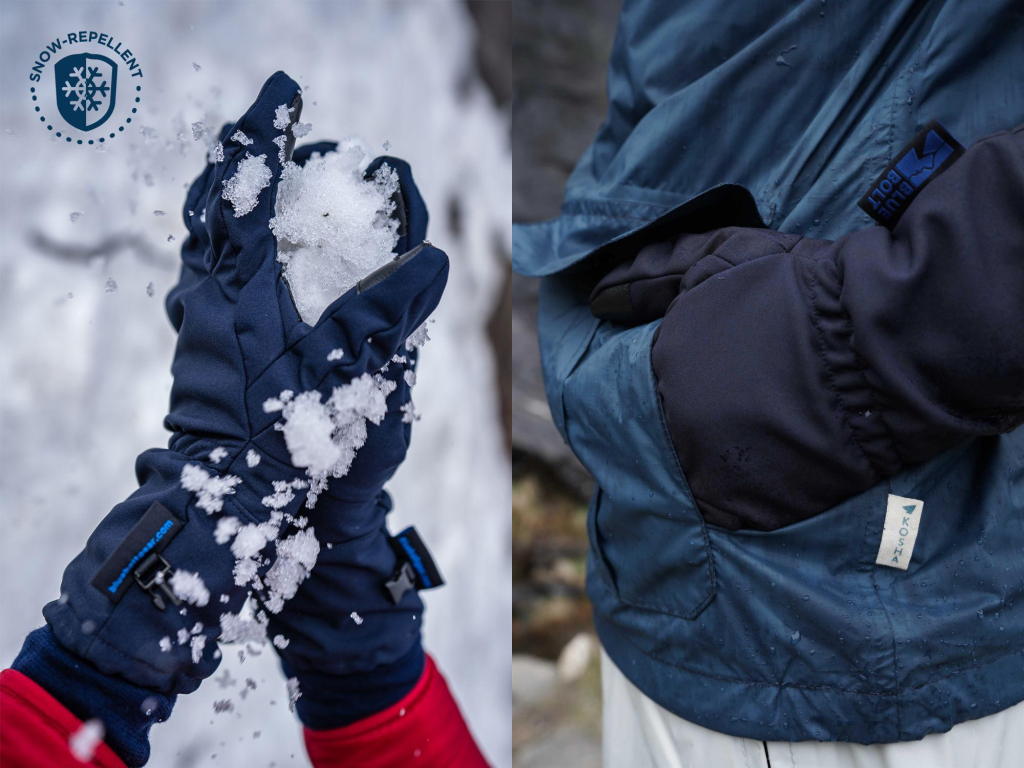
As seasons turn and temperature starts to drop, even in metro cities which usually witness summer temperatures north of 30°C, we once again turn our attention to the accessories collection in our wardrobe, and especially to the good old pair of gloves which saves our fingers from getting numb in the biting cold. However, with consumers having access to a wide variety of both women’s and men’s winter gloves thanks to E-Commerce, you are usually spoilt for choice while selecting the right pair of hand gloves online based on when and where you will be wearing them.
Jayesh Morvankar, Founder Odati Adventure and a veteran trekker give his insights on how to choose the right pair of gloves:
“It depends on what the activity is. There are gloves with fingers, mittens and even mittens with a split thumb available these days. Skiing and mountaineering gloves have their own features.
Some of the features I look for while buying gloves are:
1. How versatile they are
2. How they fit: the webbing should reach the base of the fingers
3. Their warmth
4. Windproof
5. Dexterity, ask yourself – Can I hold a cup of glass wearing the gloves?
6. Are they screen sensitive
7. Waterproof: especially for sub-zero temperatures
For cycling, it is important that the front of the fingers are protected from the cold. If you are travelling, you will hold bus handles/car handles, dexterity with respect to your activity should be evaluated. If you are layering your gloves, size is very important.”
So, to answer the question about which type of gloves you should invest on this winter, we went ahead and dug up a bit about the product and materials used for making each type of glove, the thermal insulating properties involved, to what degree are they waterproof (for usage in snow during trekking) are they blocking the wind, and whether it’s really worth giving up eco-friendly traditional woollen gloves for something apparently more stylish like leather!
What we look for in our winter gloves
It’s common knowledge that beyond a certain temperature, human fingers lose a bit of their sensitivity, which makes it that much harder to perform day to day activities in the freezing cold and this is one of the primary reasons we turn to our winter gloves. However, like the other elements in our wardrobe, our winter gloves need to fit us properly to get the best out of it! Tighter gloves, on one hand, are undesirable not only because they are less flexible but also because they hinder blood circulation, while loose gloves are unsuitable for activities where high performance is required.
The next important factor is warmth and thermal insulation, which depends on the ability of the material to trap as much air as possible within its structure. This, however, makes the gloves bulky, limits mobility but is critical in subzero temperatures. The other important factor necessary, especially for high-performance trekking gloves are waterproof breathable membranes which makes them fully or partially waterproof. The good part about waterproof gloves is that they shield off rain and snow, however, if the material isn’t breathable (the ability of a material to permeate enough air) enough, the moisture may build up inside the gloves leading to reduced thermal insulation capacity and dampness. These waterproof winter gloves for men are not only breathable, water and snow repellent, but also have reinforced grip at the palm.
Bursting the Leather Bubble with Facts
Leather gloves are a popular choice in cold environments because leather remains flexible at low temperatures and offers good grip for climbers and trekkers. Leather gloves are deemed to be partially waterproof, breathable, puncture and abrasion-resistant as well. Ticks all our boxes, does it? Let’s take a closer look.
The first thing we observed was that leather is not really waterproof unless you treat it with some kind of water repellent. It’s a no brainer that this would increase the manufacturing cost to an extent. Secondly, it’s interesting to note that leather gloves either soften(at high temperatures) or harden(at lower temperatures) depending on the absorbed water quantity and content. They also do not provide any insulation once wet. Also, leather offers limited resistance to cutting and the gloves take a considerable amount of time to dry.
Finally, mechanical properties of leather vary depending on the animal which is also a stark reminder of the fact that leather is derived from animal skin, hence not environment friendly at all. Thus, if you’d like to make a responsible choice, choose from a wide range of cruelty-free winter wear, which is not only eco friendly but also the best answer to all the shortcomings of leather products.
Akshay Kumar, Founder of MHE Adventures and national level skier, trekker and a rafting guide, has the following opinion about leather products: “Leather is great but tough to maintain. I know skiers (professionals) who swear by leather but I think we should stay away from leather for price and ethical issues”
Old is Gold: Wool never goes out of Fashion
Over the past decade, fabric technology has advanced in leaps and bounds, and today we have numerous animal-friendly alternatives to leather which are more durable, require much less maintenance and are suitable for all weather conditions (snow, wind or rain). We strongly believe that the best alternatives to leather are good old woollen hand gloves for winter, with some new cool features and trendy look(to get a better idea, go check out our brand new mittens now!) 
The main reason why wool has traditionally been used for outdoor apparels is that it is not only warm(thanks to the air space in the material) but also soft and comfortable. Wool can also trap air, making it an excellent insulating material and can absorb and release moisture, thus making it relatively breathable.
Moreover wool is an easy fibre to dye, inherently fire retardant and also resilient, thanks to the elastic nature of the fibre. The natural antibacterial properties of wool make it odour resistant and hence the perfect pick while planning a long trek in hilly terrains. Among the various types of wool, Merino wool is the most preferred one as it’s very warm and incredibly soft inside out. Woolen gloves now come with touchscreen capabilities. This means you can use your phone without removing your gloves. Check out the best touch screen winter gloves in India here!
We believe that woolen gloves are still a far better choice than their leather counterparts, considering the various drawbacks present inherently in the material itself.
Finally, for the sake of answering the question, owing to the material characteristics of the leather and it’s poor breathability, leather gloves are not useful below a certain temperature and are definitely not a warmer alternative to environment-friendly woolen gloves!
This article was written by Kosha Team member: Aditya Das
If you have any stories or queries for us, then shoot us a mail at konnect@kosha.co | Also, say hello to us on Facebook, Instagram & LinkedIn and keep the travel bug going. Till next time!

